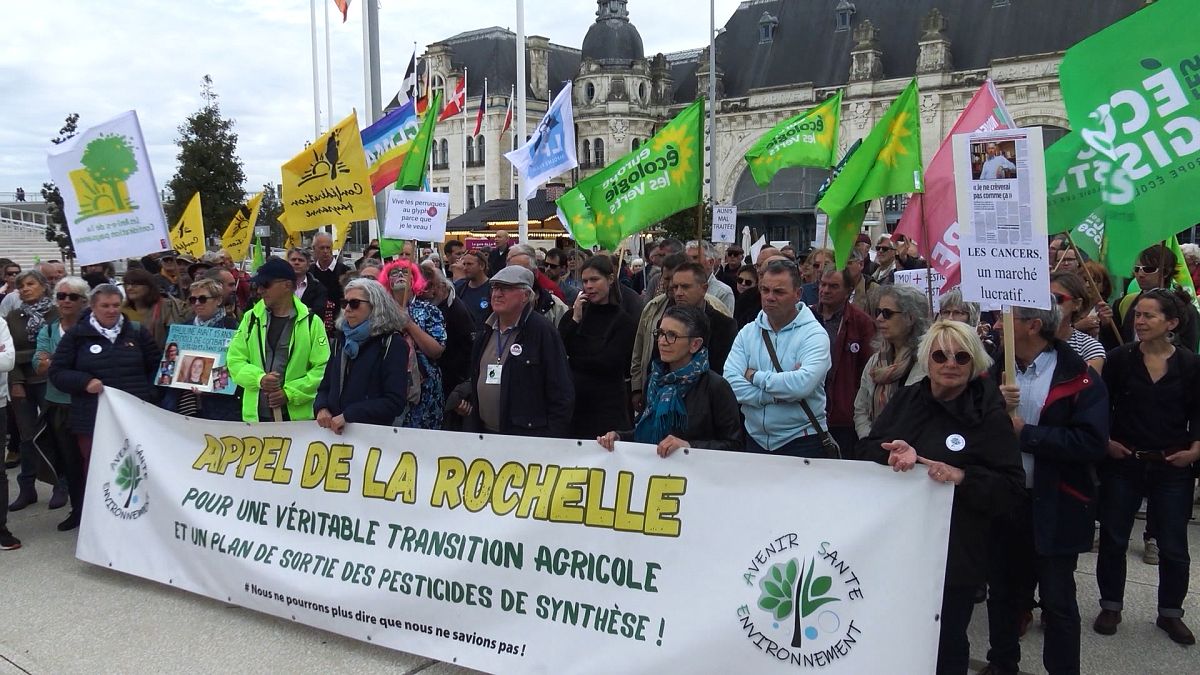In Charente-Maritime, France, residents are alarmed by an increase in child cancer cases that they suspect are linked to pesticide exposure. This has led them to push for stricter regulations on pesticide use at both the national and EU levels. The European Union, a major consumer and exporter of pesticides, had previously planned to reduce their use by half within a few years. However, this target was recently dropped under pressure from farmers and agrochemical lobbies.
One such concerned resident is Franck Rinchet-Girollet, whose 7-year-old son survived bone cancer diagnosed 5 years ago. He co-chairs the association Avenir Santé Environnement, which was established by local residents fighting to determine the cause of the rising cancer cases in children. Toxicological analyses conducted on 72 children from six municipalities in the region revealed the presence of 14 pesticide molecules in their urine and 45 in their hair, including banned ones. Franck urges the European Union to support the agricultural sector in phasing out synthetic pesticides to prevent further cases of pediatric cancer.
Despite having some of the best pesticide legislation in the world, European nations have struggled to properly implement these regulations. Martin Dermine, Executive Director of PAN Europe, emphasizes the importance of preventive measures to reduce the use of pesticides, such as crop rotation and pest-resistant varieties. He believes that if subsidies were directed towards producing food for local consumption rather than for export, Europe could transition to organic farming without increasing costs. Dermine also advocates for stricter enforcement of pesticide regulations by the European Commission to protect citizens from the harmful effects of these chemicals.
The European Ombudsman recently criticized the Commission for failing to make timely decisions on authorizing dangerous chemical substances, leading to delays that allow companies to continue distributing potentially harmful products. By improving the authorization process and holding Member States accountable for implementing pesticide regulations, Brussels can ensure better protection for its citizens. It is essential to address the misuse of CAP funds, which currently benefit the pesticide and fertilizer industry and support the export of crops outside the EU. Redirecting these subsidies towards sustainable and organic farming practices could lead to a healthier and more environmentally friendly agricultural sector in Europe.
Overall, the concerns raised by residents of Charente-Maritime highlight the urgent need for stricter regulations on pesticide use to protect public health. The European Union must take action to phase out harmful synthetic pesticides, enforce existing regulations more effectively, and redirect subsidies towards sustainable agriculture practices. By prioritizing the health and well-being of its citizens over the interests of agrochemical industries, Europe can work towards a future where pesticides are no longer a threat to human health and the environment.










